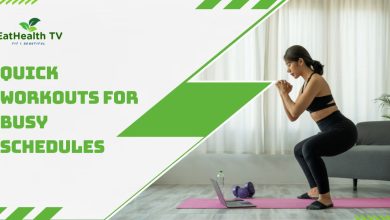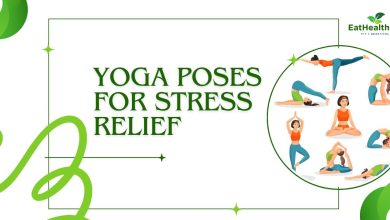Mind Over Matter: Fitness Secrets for Mental Resilience
Empower Your Mind: Fitness for Unstoppable Mental Resilience
Mind Over Matter: Fitness Secrets for Mental Resilience
In the pursuit of health and wellness, we often focus primarily on physical fitness, neglecting the equally important aspect of mental resilience. Mental resilience refers to our ability to bounce back from challenges, cope with stress, and maintain a positive outlook on life despite adversity. Just as we train our bodies to be strong and flexible, we can also train our minds to be resilient and adaptable. In this comprehensive guide, we will explore the concept of mind over matter and share fitness secrets for building mental resilience, from mindset techniques to lifestyle practices that promote overall well-being.
Understanding Mental Resilience
Mental resilience is not about avoiding or suppressing difficult emotions; rather, it is about facing challenges head-on and bouncing back stronger than before. Resilience allows us to adapt to change, navigate setbacks, and thrive in the face of adversity. While some individuals may naturally possess greater resilience than others, resilience is also a skill that can be developed and strengthened through intentional practice and effort.
The Role of Fitness in Mental Resilience
Physical fitness and mental resilience are closely intertwined. Engaging in regular exercise not only strengthens our bodies but also has profound effects on our mental and emotional well-being. Exercise releases endorphins, neurotransmitters that act as natural painkillers and mood boosters, helping to reduce stress and improve mood. Additionally, physical activity promotes neuroplasticity, the brain’s ability to reorganize and adapt, leading to improved cognitive function and resilience. Just as we know Can Psychology Boost Your Fitness Motivation?
Fitness Secrets for Building Mental Resilience
Now, let’s explore some fitness secrets for building mental resilience:
- Mindfulness Meditation: Incorporate mindfulness meditation into your fitness routine to cultivate awareness, presence, and emotional regulation. Set aside time each day to sit quietly, focus on your breath, and observe your thoughts and feelings without judgment.
- Stress-Relieving Workouts: Engage in stress-relieving workouts such as yoga, tai chi, or Pilates, which combine movement with mindfulness and breathwork to promote relaxation and reduce stress. These gentle forms of exercise can help calm the nervous system and improve resilience to stress.
- Strength Training: Incorporate strength training into your fitness regimen to build physical strength and mental toughness. Lifting weights challenges both your body and mind, teaching you to push through discomfort and overcome obstacles with determination and perseverance.
- Cardiovascular Exercise: Get your heart pumping with cardiovascular exercise such as running, cycling, or swimming, which not only improves physical fitness but also boosts mood and energy levels. Cardiovascular exercise increases blood flow to the brain, enhancing cognitive function and mental resilience.
- Outdoor Activities: Spend time in nature engaging in outdoor activities such as hiking, gardening, or trail running, which have been shown to reduce stress and improve mood. Connecting with the natural world can foster a sense of calm, awe, and perspective, enhancing resilience to life’s challenges.
- Group Fitness Classes: Join group fitness classes or sports teams to socialize, connect with others, and build a support network. Exercising with others can provide accountability, motivation, and camaraderie, fostering a sense of belonging and resilience.
- Rest and Recovery: Prioritize rest and recovery as essential components of your fitness routine. Allow your body and mind time to rest and recharge between workouts, practicing self-care activities such as massage, meditation, or relaxation techniques to promote recovery and resilience.
Incorporating Fitness into Daily Life
Incorporating fitness into your daily life doesn’t have to be complicated or time-consuming. Here are some practical tips for making fitness a priority:
- Set Realistic Goals: Set achievable fitness goals that align with your values and priorities, whether it’s completing a yoga challenge, running a marathon, or simply committing to daily movement.
- Schedule Regular Workouts: Schedule regular workouts into your calendar as non-negotiable appointments with yourself. Treat exercise as an essential part of your self-care routine, prioritizing it alongside other commitments.
- Find Activities You Enjoy: Experiment with different types of exercise until you find activities that you genuinely enjoy and look forward to. Whether it’s dancing, rock climbing, or playing sports, choose activities that bring you joy and fulfillment.
- Mix It Up: Keep your fitness routine interesting and engaging by mixing up your workouts and trying new activities. Incorporate a variety of exercises, from strength training and cardio to flexibility and balance work, to challenge your body and mind in different ways.
- Listen to Your Body: Pay attention to your body’s signals and adjust your workouts accordingly. If you’re feeling tired or sore, opt for gentler forms of exercise or take a rest day to allow your body to recover.
- Stay Consistent: Consistency is key to building mental resilience through fitness. Aim to exercise regularly, even on days when you don’t feel like it, knowing that each workout contributes to your overall health and well-being.
Conclusion
In conclusion, mind over matter is not just a saying; it’s a philosophy that highlights the power of the mind to overcome physical challenges and adversity. By incorporating fitness into our lives, we can strengthen both our bodies and our minds, building resilience, improving mood, and enhancing overall well-being. Whether it’s through mindfulness meditation, stress-relieving workouts, or outdoor activities in nature, there are countless ways to harness the power of fitness to cultivate mental resilience. So, let’s prioritize our mental fitness and unlock our full potential for resilience, strength, and vitality.





